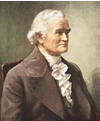
| 36£®A£®showed | B£®shared | C£®protected | D£®developed |
| 37£®A£®although | B£®unless | C£®because | D£®while |
| 38£®A£®hard | B£®peaceful | C£®modern | D£®normal |
| 39£®A£®anxious | B£®strange | C£®familiar | D£®comfortable |
| 40£®A£®pour | B£®make | C£®figure | D£®hold |
| 41£®A£®donated | B£®returned | C£®brought | D£®recommended |
| 42£®A£®admitted | B£®referred | C£®mentioned | D£®introduced |
| 43£®A£®concern | B£®hurt | C£®curiosity | D£®doubt |
| 44£®A£®unwilling | B£®cautious | C£®ashamed | D£®calm |
| 45£®A£®how | B£®whether | C£®that | D£®why |
| 46£®A£®aggressive | B£®jealous | C£®proud | D£®discouraged |
| 47£®A£®promised | B£®argued | C£®regretted | D£®proved |
| 48£®A£®without | B£®from | C£®for | D£®across |
| 49£®A£®expectation | B£®relation | C£®reception | D£®position |
| 50£®A£®recognizing | B£®explaining | C£®assuming | D£®predicting |
| 51£®A£®achievement | B£®spirit | C£®gift | D£®sign |
| 52£®A£®sympathy | B£®confusion | C£®surprise | D£®agreement |
| 53£®A£®Something | B£®Anything | C£®Nothing | D£®Everything |
| 54£®A£®success | B£®life | C£®research | D£®happiness |
| 55£®A£®waiting | B£®planning | C£®choosing | D£®demanding |
·ÖÎö ±¾ÎĽ²ÊöµÄÊÇ×÷Õ߶ÔÓÑÒêµÄÀí½â£®ÎÒÃÇÐÐ×ßÔÚ²»Í¬µÄÈËÉúµÀ·ÉÏ£¬¾¡¹ÜÐÂÅóÓÑÊǶÀÌصĺÍÁîÈËÐ˷ܵģ¬µ«ÊDz»¹ÜÓëÀÏÅóÓÑ·Ö¸ôµÄÓжàÔ¶£¬ËûÃǶ¼ÔÚÄÇÒ»Ö±µÈ´ý×ÅÎÒÃǵÄÔÙ´ÎÄܳ©ËùÓûÑÔ£¬·ÖÏíÈËÉúÌåÑ飮
½â´ð 36-40BCADA 41-45 CDBAD 46-50 BCADB 51-55 CDCBA
36£®B ¿¼²é¶¯´Ê±æÎö£®show±íÃ÷£»share¹²ÓУ¬·ÖÏí£»protect±£»¤£»develop·¢Õ¹£¬ÅàÑø£® sharemany interests Óкܶ๲ͬ°®ºÃ£¬¹ÊÑ¡B£®
37£®C ¿¼²éÁ¬´Ê±æÎö£®"ÎÒÃÇÁ½¸öÈ˶¼¿ÞÁË"ÊÇÒòΪ"ÎÒÃÇÒªÉϲ»Í¬µÄ´óѧ"£¬¹ÊÑ¡C£®
38£®A ¿¼²éÉÏÏÂÎÄ´®Áª£®×÷ÕߺÍÅóÓÑBeckyÖ®¼ä¸ÐÇéÉîºñ£¬±ÏÒµ·Ö¿ªÊ±ºÜÉËÐÄ£¬ÉÏ´óѧºó"We hada huge telephone bill and our e-mails were incredibly long£®"¿ÉÖª£¬²»ÄܺͺÃÅóÓÑÔÚÒ»ÆðµÄÉú»îÓ¦ÊǺܲ»¿ªÐÄ£¬¼èÄѵģ®¹ÊÑ¡A£®
39£®D ¿¼²éÉÏÏÂÎÄ´®Áª£®ÓÉÏÂÎÄ"Thesewere friends with whom I could be myself and __40__£¨pour£© outmy feelings"¿ÉÖª£¬ÓëÐÂÅóÓÑÔÚÒ»ÆðÓ¦ÊÇfeel comfortable£¨¸Ð¾õÓä¿ìÇáËÉ£©£¬¶ø²»ÊÇÆäËü¸Ð¾õ£® ¹ÊÑ¡D£®
40£®A ¿¼²é¶ÌÓï±æÎö£® pourout£ºÇãËߣ¬ÇãÍ£»makeout±æÈÏÇå³þ£¬Éù³Æ£¬Ìîд£¬Àí½â£»figure out£ºËã³ö£¬Àí½â£»holdout¼á³Ö£¬Î¬³Ö£®ÎÒÄܹ»ÇãÊöÎҵĸоõ£®¹ÊÑ¡A£®
41£®C ¿¼²é¶¯´Ê±æÎö£®donate¾èÔù£»return¹é»¹£»bring´øÀ´£»recommendÍƼö£®Ëý¸øÎÒ´øÀ´¸öÍæ¾ßÐÜ×÷ΪÀñÎ¹ÊÑ¡C£®
42£®D ¿¼²é¶¯´Ê±æÎö£® admit ³ÐÈÏ£¬½ÓÄÉ£» referto£ºÌá¼°£¬Éæ¼°£¬Ö¸µÄÊÇ£¬²éÔÄ£¬×Éѯ£»mentionÌáµ½£»introducesb£®/sth£®to sb£®½«¡½éÉܸøijÈË£® ÎÒ°ÑËý½éÉܸøÎÒµÄÐÂÅóÓÑ£®¹ÊÑ¡D£®
43£®B ¿¼²éÉÏÏÂÎÄ´®Áª£®ÓÉ"Hereyes grew dark"¿ÉÒÔÅÐÖªBeckyÓÐЩʧÂäºÍÉËÐÄ£¬¸Ð¾õ×Ô¼ºÊܵ½ÁËÉ˺¦£®concernµ£ÐÄ£¬¹ØÐÄ£»curiosityºÃÆ棻doubt»³ÒÉ£®¹ÊÑ¡B£®
44£®A ¿¼²éÉÏÏÂÎÄ´®Áª£®¸ù¾ÝÉÏÏÂÎÄ¿ÉÖªBecky²»ÀÖÒâ½ÓÊÜÀ´×Ô×÷ÕßµÄÅóÓѵÄÓÑÇ飮unwilling²»ÀÖÒâµÄ£»cautiousСÐĽ÷É÷µÄ£»ashamedÐßÀ¢µÄ£»calmÕò¶¨µÄ£® ¹ÊÑ¡A£®
45£®D ¿¼²éÉÏÏÂÎÄ´®Áª£®×÷Õß²»Ã÷°×µÄÊÇΪʲô×÷Õß×îÉî°®µÄÈËÖ®¼ä²»ÄÜ»¥Ïà¹Ø°®£®Ö¸µÄÊÇBeckyµÄËù×÷ËùΪ£®¹ÊÑ¡D£®
46£®B£®¿¼²éÐÎÈݴʱæÎö£®aggressiveºÃ¶·µÄ£»jealous ¼µ¶ÊµÄ£»proud×ÔºÀµÄ£»discouraged¾ÚÉ¥µÄ£®ÎÒÀí½âÁËËýÊǼµ¶Ê£®¹ÊÑ¡B£®
47£®C ¿¼²é¶¯´Ê±æÎö£®promise Ðíŵ£» argued Ö÷ÕÅ£¬ÕùÂÛ£» regretΪ¡¸Ðµ½Òź¶£¬Íïϧ£¬ºó»Ú£» proveÖ¤Ã÷£® ºÜÒź¶ÎÒÃDz»ÄÜ·ÖÏíÕâЩ¾Àú£®¹ÊÑ¡C£®
48£®A ¿¼²é½é´Ê±æÎö£®¸ù¾Ý¾äÒ⣬¾¡¹ÜËýûÔÚÔÚÉíÅÔ£¬µ«×÷Õß»¹ÊÇͨ¹ýºÍÆäËûÐÂÅóÓÑÏà´¦¹ý³ÌÖÐÕÒµ½»¶ÀÖ£¬¶øBeckyÏ£ÍûÏñ×÷ÕßµÄÄÇЩÐÂÅóÓÑÒ»ÑùÄÜʱ³£°éËæÔÚ×÷ÕßÉíÅÔ£®¹ÊÑ¡A£®
49£®D ¿¼²éÃû´Ê±æÎö£®expectationÆÚÍû£»relation¹Øϵ£»reception½Ó´ý£»positionλÖã®ËýÏ£ÍûËýÄÜÔÚËýÃǵÄλÖÃÉÏ£®¹ÊÑ¡D£®
50£®B ¿¼²éÉÏÏÂÎÄ´®Áª£®¸ù¾ÝÏÂÎÄ£¬Ð´ÐŵÄÄ¿µÄµ±È»ÊÇÒªÏòBecky½âÊÍ£®recognizingÈϳö£»explaining½âÊÍ£»assuming¼ÙÉ裻predictingÔ¤²â£®¹ÊÑ¡B£®
51£®C£®¿¼²éÃû´Ê±æÎö£®achievement³É¾Í£» spirit ¾«Éñ£» gift ÀñÎsign ÕÐÅÆ£¬±êÖ¾£¬¼£Ïó£®ÅóÓÑÓ¦ÊÇÉú»î¸øÓèÎÒÃǵÄ×î´óÀñÎ¹ÊÑ¡C£®
52£®D ¿¼²éÃû´Ê±æÎö£®¾¹ý×÷ÕߵĽâÊÍ£¬BeckyÈÏʶµ½ÁË×Ô¼ºµÄ´í£¬Í¬Òâ×÷ÕߵĹ۵㣮inagreement Òâ¼ûÒ»Ö£®sympathy ͬÇ飻confusion À§»ó£»surprise¾ªÑÈ£¬¶¼²»ÊÇBeckyµ±Ê±Ó¦ÓеÄÇé¸Ð£®¹ÊÑ¡D£®
53£®C ¿¼²éÉÏÏÂÎÄ´®Áª£®ÓɺóÃæoldfriends are always there£¬55 to share their heart and soul£¬no matter how far apart£®¿ÉÒÔÅжϳö×÷ÕßÏë±í´ïµÄÊÇûʲôÄÜÓ°ÏìÕæÕýµÄÓÑÒêºÍ¸Ä±äÒ»Æð¾ÀúµÄÊÂÇ飮¹ÊÑ¡C£®
54£®B£®¿¼²éÃû´Ê±æÎö£®success³É¹¦£»lifeÈËÉú£»researchÑо¿£»happinessÐÒ¸££®ÎÒÃÇÐÐ×ßÔÚ²»Í¬µÄÈËÉúµÀ·ÉÏ£®¹ÊÑ¡B£®
55£®A ¿¼²é¶¯´Ê±æÎö£®waitingµÈ´ý£»planning¼Æ»®£»choosing Ñ¡Ôñ£»demandingÒªÇó£®¾¡¹ÜÐÂÅóÓÑÊǶÀÌصĺÍÁîÈËÐ˷ܵģ¬µ«ÊDz»¹ÜÓëÀÏÅóÓÑ·Ö¸ôµÄÓжàÔ¶£¬ËûÃǶ¼ÔÚÄÇÒ»Ö±µÈ´ý×ÅÎÒÃǵÄÔÙ´ÎÄܳ©ËùÓûÑÔ£¬·ÖÏíÈËÉúÌåÑ飮 ¹ÊÑ¡A£®
µãÆÀ ÍêÐÎÌî¿Õ´ðÌâÇ°Ò»¶¨Òª¶Á¶®È«ÎÄ£¬ÅªÇåÎÄÕÂÒª±í´ïµÄ˼Ï룬עÒâÇ°ºó¶ÎÂäÖ®¼äµÄ¹Øϵ£®´ðÌâÖУ¬Ò»¶¨ÒªÈÏÕæ·ÖÎö£¬×¢ÒâÑ¡ÏîÓëÉÏÏÂÎĵĹØϵ£¬ÓëÇ°ºóµ¥´ÊµÄ¹Øϵ£®¶ÔÓÚһʱûÓÐÌ«´óµÄ°ÑÎÕµÄÌâ¿ÉÒԷŵ½×îºóÔÙÀ´Íê³É£¬ÒòΪÓÐʱ´ð°¸¿ÉÒÔ´ÓÏÂÎÄÄÚÈÝÌåÏÖ³öÀ´£®´ðÍêºóÔÙͨ¶ÁһƪÎÄÕ£¬¿´¿´ËùÑ¡Ñ¡ÏîÄܲ»ÄÜÊÇÓï¾äͨ˳£¬ÓïÒâÁ¬¹á£®


 ½òÇŽÌÓý¼ÆËãС״ԪϵÁдð°¸
½òÇŽÌÓý¼ÆËãС״ԪϵÁдð°¸
| Ä꼶 | ¸ßÖÐ¿Î³Ì | Ä꼶 | ³õÖÐ¿Î³Ì |
| ¸ßÒ» | ¸ßÒ»Ãâ·Ñ¿Î³ÌÍƼö£¡ | ³õÒ» | ³õÒ»Ãâ·Ñ¿Î³ÌÍƼö£¡ |
| ¸ß¶þ | ¸ß¶þÃâ·Ñ¿Î³ÌÍƼö£¡ | ³õ¶þ | ³õ¶þÃâ·Ñ¿Î³ÌÍƼö£¡ |
| ¸ßÈý | ¸ßÈýÃâ·Ñ¿Î³ÌÍƼö£¡ | ³õÈý | ³õÈýÃâ·Ñ¿Î³ÌÍƼö£¡ |
¿ÆÄ¿£º¸ßÖÐÓ¢Óï À´Ô´£º ÌâÐÍ£ºÌî¿ÕÌâ
²é¿´´ð°¸ºÍ½âÎö>>
¿ÆÄ¿£º¸ßÖÐÓ¢Óï À´Ô´£º ÌâÐÍ£ºÐÅϢƥÅä
 I'll do it tomorrow£¬I swear!
I'll do it tomorrow£¬I swear!²é¿´´ð°¸ºÍ½âÎö>>
¿ÆÄ¿£º¸ßÖÐÓ¢Óï À´Ô´£º ÌâÐÍ£º½â´ðÌâ
 Noah Webster published his first dictionary of the English language in 1806£¬and in 1828published the first edition of his An American Dictionary of the English Language£®The work came out in 1828in two volumes£®It contained 12£¬000words from 30£¬000to 40£¬000definitions £¨¶¨Ò壩 that had not appeared in any earlier dictionary£®In 1840the second edition£¬corrected and enlarged£¬came out£¬in two volumes£®He completed the revision £¨ÐÞ¶©£© of an appendix £¨¸½Â¼£© a few days before his death£¬which occurred in New Haven on the 28th of May 1843£®
Noah Webster published his first dictionary of the English language in 1806£¬and in 1828published the first edition of his An American Dictionary of the English Language£®The work came out in 1828in two volumes£®It contained 12£¬000words from 30£¬000to 40£¬000definitions £¨¶¨Ò壩 that had not appeared in any earlier dictionary£®In 1840the second edition£¬corrected and enlarged£¬came out£¬in two volumes£®He completed the revision £¨ÐÞ¶©£© of an appendix £¨¸½Â¼£© a few days before his death£¬which occurred in New Haven on the 28th of May 1843£®²é¿´´ð°¸ºÍ½âÎö>>
¿ÆÄ¿£º¸ßÖÐÓ¢Óï À´Ô´£º ÌâÐÍ£º½â´ðÌâ
²é¿´´ð°¸ºÍ½âÎö>>
¿ÆÄ¿£º¸ßÖÐÓ¢Óï À´Ô´£º ÌâÐÍ£ºÑ¡ÔñÌâ
| A£® | .after | B£® | .before | C£® | since | D£® | .until |
²é¿´´ð°¸ºÍ½âÎö>>
¿ÆÄ¿£º¸ßÖÐÓ¢Óï À´Ô´£º ÌâÐÍ£ºÌî¿ÕÌâ
²é¿´´ð°¸ºÍ½âÎö>>
¿ÆÄ¿£º¸ßÖÐÓ¢Óï À´Ô´£º ÌâÐÍ£ºÑ¡ÔñÌâ
| A£® | In it | B£® | in | C£® | in that | D£® | in which |
²é¿´´ð°¸ºÍ½âÎö>>
¿ÆÄ¿£º¸ßÖÐÓ¢Óï À´Ô´£º ÌâÐÍ£ºÑ¡ÔñÌâ
| A£® | left£» out | B£® | assisted£» in | C£® | helped£» with | D£® | conducted£» in |
²é¿´´ð°¸ºÍ½âÎö>>
°Ù¶ÈÖÂÐÅ - Á·Ï°²áÁбí - ÊÔÌâÁбí
ºþ±±Ê¡»¥ÁªÍøÎ¥·¨ºÍ²»Á¼ÐÅÏ¢¾Ù±¨Æ½Ì¨ | ÍøÉÏÓк¦ÐÅÏ¢¾Ù±¨×¨Çø | µçÐÅթƾٱ¨×¨Çø | ÉæÀúÊ·ÐéÎÞÖ÷ÒåÓк¦ÐÅÏ¢¾Ù±¨×¨Çø | ÉæÆóÇÖȨ¾Ù±¨×¨Çø
Î¥·¨ºÍ²»Á¼ÐÅÏ¢¾Ù±¨µç»°£º027-86699610 ¾Ù±¨ÓÊÏ䣺58377363@163.com